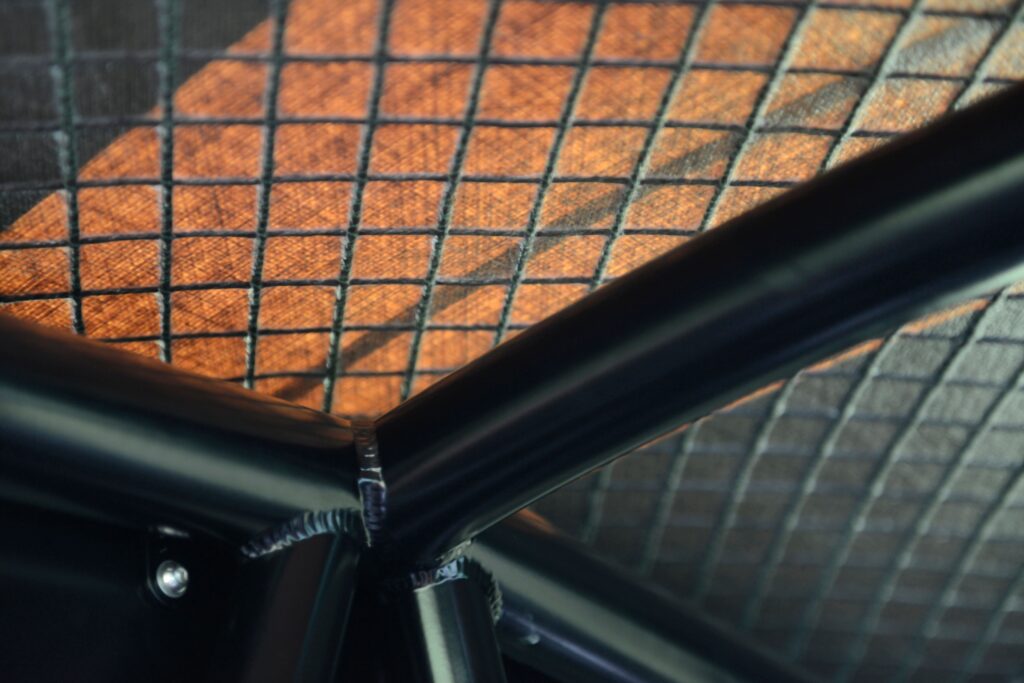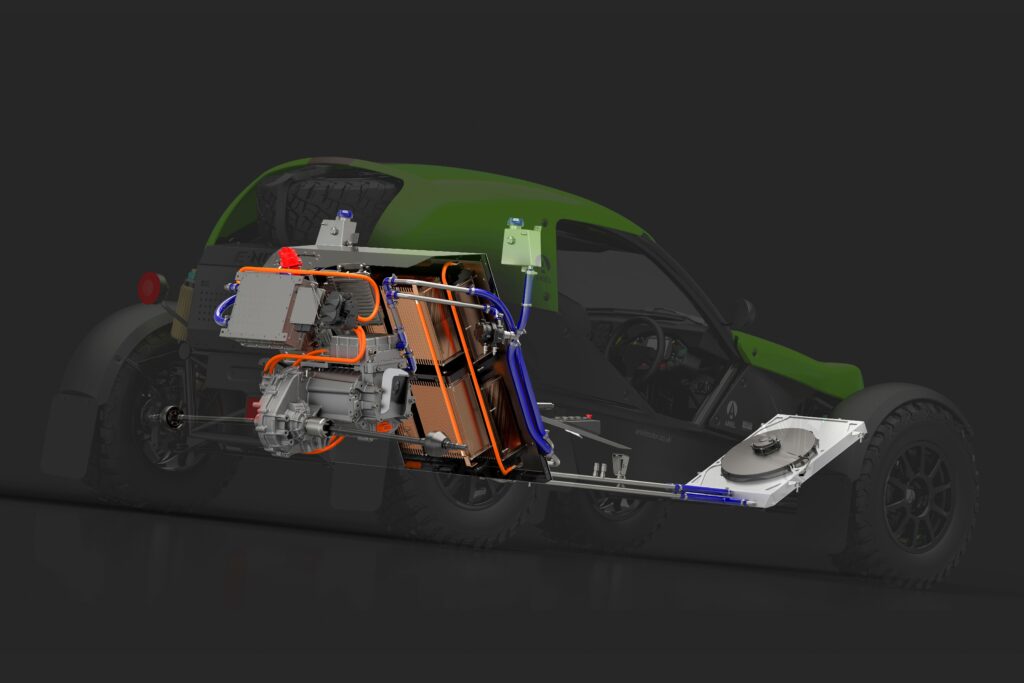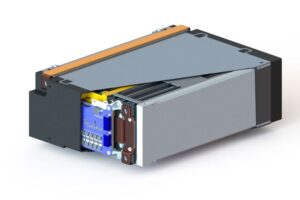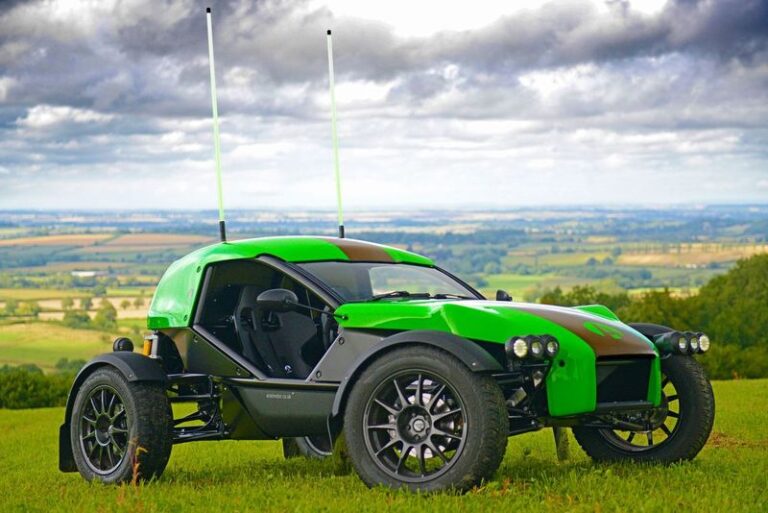Ariel Motor Company, a UK-based manufacturer of lightweight vehicles, has introduced the E-Nomad concept, an all-electric version of its off-road sportscar. The E-Nomad, weighing 896kg, features a new 450-volt 41kWh battery system and has a power output of 210kW (281bhp). Ariel says the vehicle can accelerate from 0 to 60mph in 3.4 seconds and perform across a range of terrains, including off-road rock crawling and rally stages.
The E-Nomad’s body is constructed from flax fiber biocomposite panels, which are 9% lighter than carbon fiber and result in a 73% reduction in CO2 emissions during production, according to the company. These panels were developed with composite manufacturer Bamd Composites and contribute to a 30% reduction in drag compared to the standard Nomad.

Powertrain
Developed in partnership with automotive and motorsport engineering specialist Rockfort Engineering and supported by the UK government’s Advanced Propulsion Centre and Niche Vehicle Network, the E-Nomad is part of Ariel’s broader Zero Emission for Low Volume program. The vehicle’s battery pack, weighing under 300kg, incorporates advanced cooling and heating systems to improve performance in various conditions. The powertrain, managed by a Rockfort Engineering control system, provides adjustable power delivery and regenerative braking, with modes for both Eco and Sport driving.
The 450-volt battery pack features Rockfort’s all-new Pegasus V3 modules that use high-energy lithium-ion pouch cells. The E-Nomad uses 12 Pegasus V3 modules with a total capacity of 41kW and power output of 210kW.

The E-Nomad uses a Cascadia Motion iDM 190 combined motor, gearbox and DX inverter drive unit. Powering the rear wheels is a Borg Warner eDM motor spinning to 12,000rpm and single-speed transmission with reduction gearing of 8.28:1. A limited slip differential and parking lock are also part of the vehicle’s specification. The drive unit is water-cooled via a secondary system, independent of the battery, from the front-mounted, split-circuit radiator.
Situated behind the driver, the single battery pack is 
capable of AC (Type 2) and DC (CCS2) fast-charging. Ariel says this enables the E-Nomad to be charged at home on a normal domestic supply, or via a dedicated fast charger in under 25 minutes from 20% to 80%.
A revised power delivery management electrical system also manages battery power states, enabling the system to automatically ‘wake’ or ‘sleep’ for charging and battery management.
Simon Saunders, Ariel’s director, commented, “While the E-Nomad is a concept, it does show production intent for the vehicle and hints at just a small part of Ariel’s future. Once it has been through our usual, grueling testing regime we could opt to add the E-Nomad alongside its ICE Nomad 2 sibling, so we’ll take great interest in customer feedback on the concept car.”
Ariel plans to showcase the E-Nomad at the Cenex Expo 2024 at UTAC Millbrook on September 4. Although the E-Nomad is not currently available for purchase, Ariel says it will use the event to gauge public interest and guide future developments. The company intends to conduct extensive testing of the prototype to explore its potential applications.


